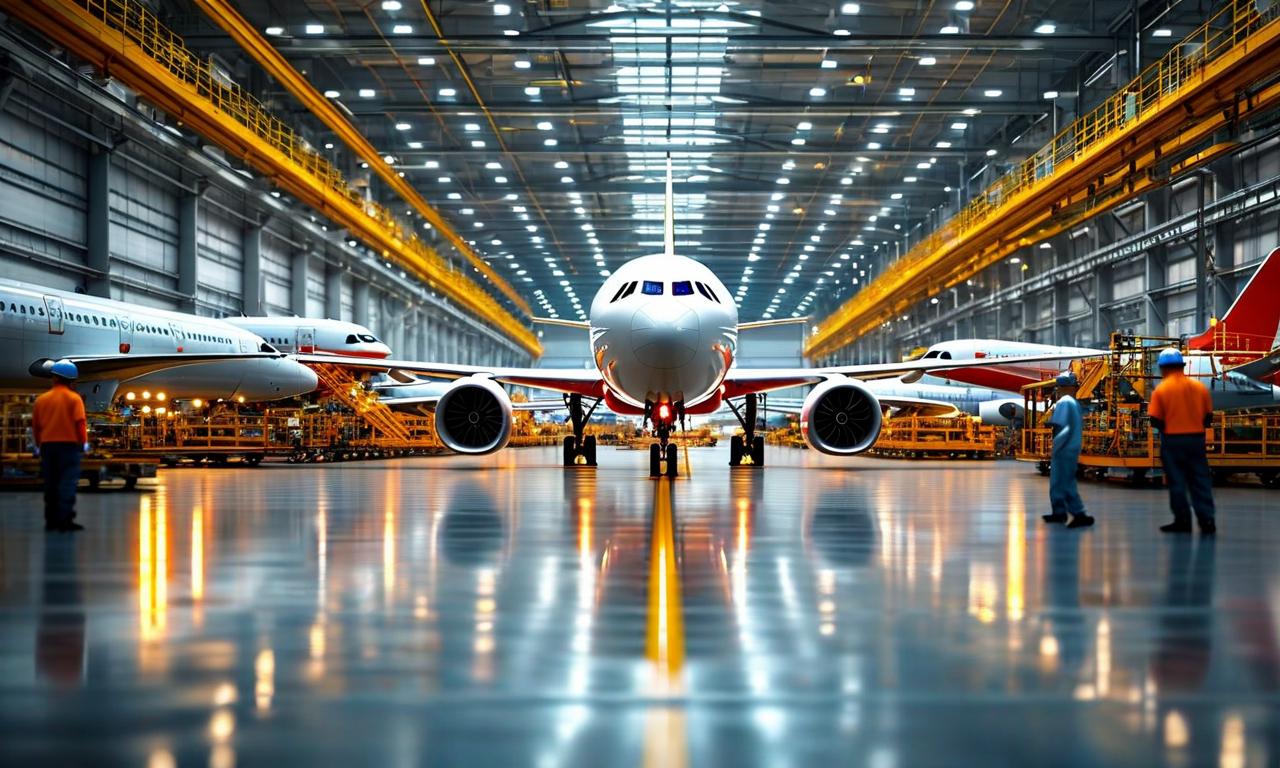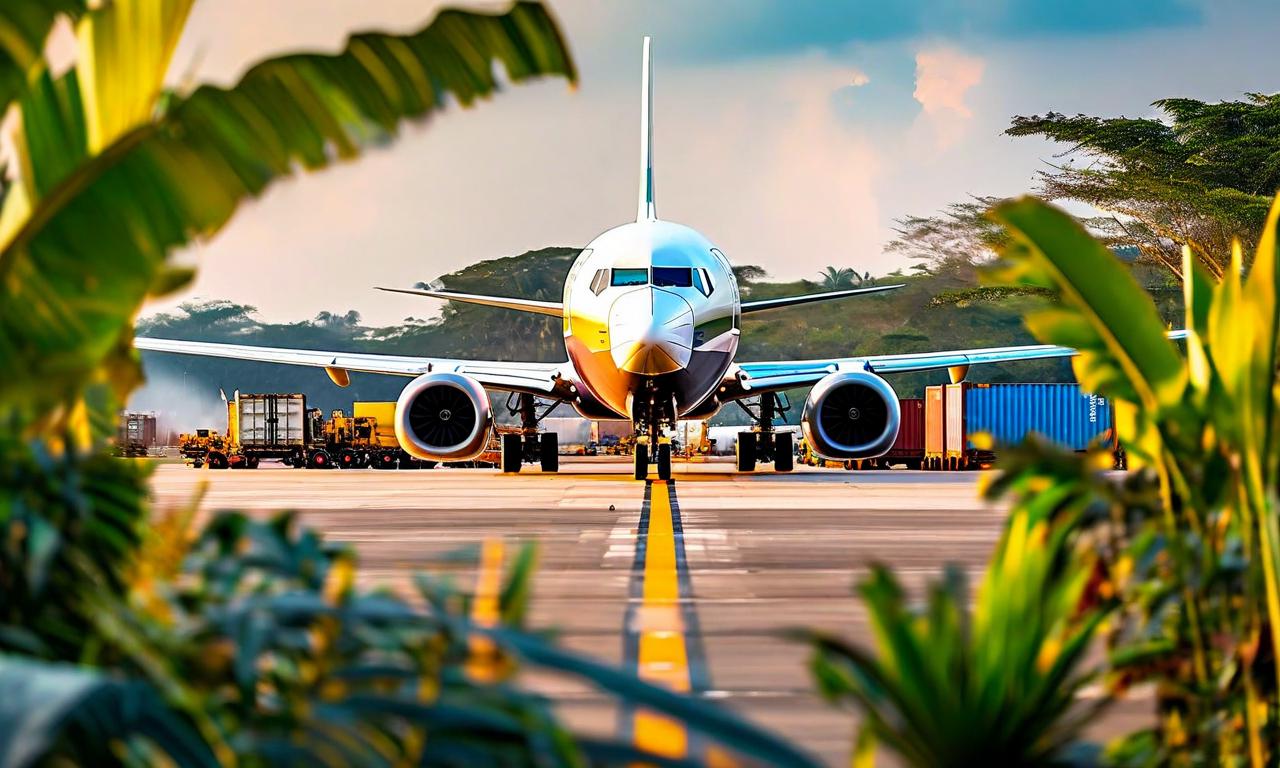Boeing in Talks with China for Massive 500-Aircraft Deal
Boeing is reportedly negotiating with China for a sale of up to 500 aircraft, potentially ending a six-year sales drought in the Chinese market. The deal, similar to China's recent agreement with Airbus, involves discussions on aircraft types, order volumes, and delivery schedules. Boeing's last major Chinese deal was in November 2017 for 300 planes valued at $37 billion. The potential agreement could signal Boeing's comeback in the Chinese market and help it regain ground against Airbus. Boeing shares surged up to 3.70% in premarket trading on this news.

*this image is generated using AI for illustrative purposes only.
Boeing, the American aerospace giant, is reportedly in discussions with China for a potential sale of up to 500 aircraft, a move that could mark the end of a six-year sales drought in the Chinese market. This development has sparked investor interest, with Boeing shares surging as much as 3.70% in premarket trading.
Potential Deal Details
The proposed deal, similar in scope to China's recent agreement with Airbus, involves complex negotiations on various aspects:
- Aircraft types
- Order volumes
- Delivery schedules
Chinese officials are reportedly consulting with domestic airlines to assess their Boeing aircraft needs, indicating a comprehensive approach to the potential purchase.
Historical Context
This negotiation comes at a crucial time for Boeing, as the company's last major Chinese deal dates back to November 2017. That order, valued at $37.00 billion, was for 300 planes. Since 2019, Boeing has secured only 30 orders from Chinese carriers and leasing companies, while its European rival, Airbus, has dominated the Chinese market following the grounding of Boeing's 737 Max.
Market Implications
The potential deal carries significant implications for both Boeing and the broader aviation industry:
Market Recovery: A successful agreement could signal Boeing's strong comeback in the Chinese market, one of the world's largest and fastest-growing aviation sectors.
Competition with Airbus: The deal, if finalized, would help Boeing regain ground against Airbus, which has had a strong foothold in China in recent years.
Economic Ties: The aircraft sale is expected to be part of a broader trade agreement between the United States and China, potentially easing tensions between the two economic powerhouses.
Challenges and Contingencies
Despite the positive outlook, the deal faces several hurdles:
- Trade Tensions: The transaction is contingent on resolving ongoing trade disputes between the US and China.
- Regulatory Approvals: Given the recent history of the 737 Max, regulatory scrutiny may play a significant role in the negotiations.
- Market Demand: The final order size will depend on the actual needs of Chinese airlines, which are still recovering from the impact of the COVID-19 pandemic.
As negotiations continue, the aviation industry and investors alike will be closely watching this potentially game-changing deal for Boeing and its implications for US-China trade relations.

























